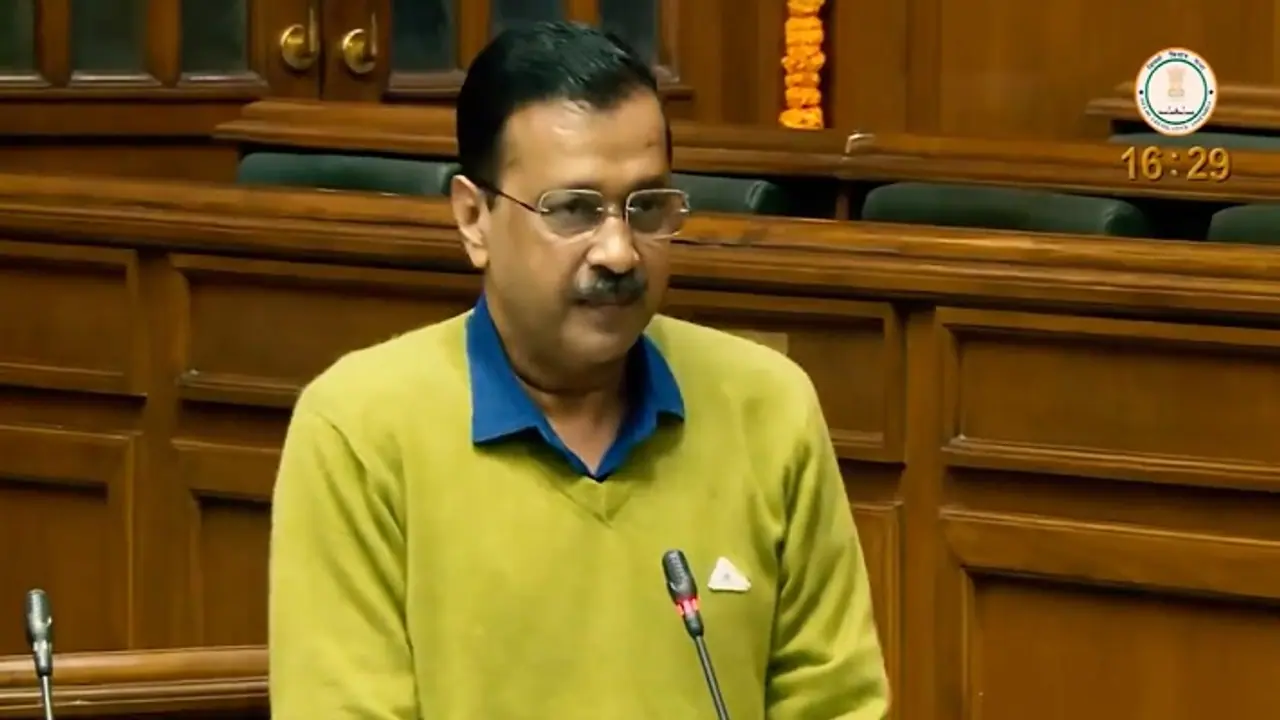The arrest of the 55-year-old AAP national convener Arvind Kejriwal could significantly impact the party's electoral prospects, as he has played a central role in its plans and strategies for the upcoming Lok Sabha elections 2024.
Transitioning from leading the 'India Against Corruption' movement to serving as the chief minister of Delhi for three consecutive terms, Arvind Kejriwal has traversed a diverse path from bureaucrat to activist to politician. However, his Thursday's arrest by the Enforcement Directorate adds a new chapter to his checkered career.

Kejriwal's apprehension comes at a critical juncture as his Aam Aadmi Party (AAP) is actively engaging in electoral politics, particularly through a partnership with its opposition INDIA bloc ally, Congress, for the Lok Sabha elections in Delhi, Haryana, and Gujarat.
Also read: Why did ED arrest Arvind Kejriwal? Case history, ED's charges and more
The arrest of the 55-year-old AAP national convener could significantly impact the party's electoral prospects, as he has played a central role in its plans and strategies for the upcoming Lok Sabha elections 2024. With Kejriwal sidelined, the party confronts uncertainty, compounded by the absence of several other senior leaders either behind bars or marginalized in the political landscape.
His trusted aides, Sanjay Singh and Manish Sisodia, are currently imprisoned in connection with the excise policy case, while another close associate, Satyendar Jain, is in jail facing separate charges in a money laundering case.
Arvind Kejriwal, an IIT graduate, steered AAP to victory in forming the government in Delhi in 2013 with external support from the Congress. In his electoral debut, he contested against former Delhi chief minister Sheila Dikshit in the New Delhi constituency and secured victory with a margin of 22,000 votes.
However, the coalition government of Aam Aadmi Party and Congress collapsed within 49 days as Kejriwal resigned due to his inability to pass the Jan Lokpal Bill in the Delhi Assembly.
Despite this setback, buoyed by the party's initial electoral success in Delhi, Kejriwal decided to contest against BJP's Narendra Modi in the 2014 Lok Sabha elections from Varanasi, only to face a resounding defeat.
The following year, Kejriwal led AAP to a landslide victory, securing 67 seats in the Delhi Legislative Assembly elections, significantly outperforming the BJP, which was riding the wave of Modi's popularity, and leaving the Congress without any seats.
In the lead-up to the 2015 Assembly polls, Arvind Kejriwal repeatedly apologized for his actions during the 49-day tenure in 2013 and pledged not to resign again.
Emerging from the anti-corruption movement of 2011, the Aam Aadmi Party (AAP) was established in the national capital by Kejriwal and his closest allies on Gandhi Jayanti (October 2) the following year.
In just 12 years, Kejriwal has spearheaded AAP's ascent as the third-largest national party in the country, after the BJP and the Congress. The party has expanded its presence not only in Delhi and Punjab but also in distant states like Gujarat and Goa.
Challenged by politicians during his 'India Against Corruption' days to enter active politics, Kejriwal successfully maintained a focus on issues such as health, education, water, and electricity supply as the cornerstone of his politics and governance. Despite criticism from detractors for reneging on his promise for the Lokpal, he has endeavored to prioritize these core concerns.
Arvind Kejriwal, who gained prominence as an activist by channeling public outrage against widespread corruption during the Congress-led UPA regime in 2011, remains steadfast in his criticism of politicians regarding the deteriorating state of health and education in the country.
Throughout his decade-long political journey, Kejriwal has exhibited a range of strategies, from aligning with the INDIA bloc of opposition parties, despite previously condemning their corruption issues, to embracing a "soft Hindutva" stance, as seen in initiatives like his free pilgrimage scheme and recent chanting of "Jai Sri Ram" slogans in the Delhi Assembly. At one point, he advocated for placing images of Ganesha and Lakshmi on currency notes to promote economic prosperity.
The AAP's assertion of pursuing corruption-free governance and alternative politics faces a significant setback with Kejriwal's incarceration in connection with the liquor scam case.
While defending his colleagues Sisodia, Singh, and Satyendar Jain, Kejriwal has equated corruption to "treason" and emphasized AAP's adherence to the principles espoused by Bhagat Singh.
The arrest of Kejriwal in a corruption case marks a significant departure from his earlier image as an AAP leader who undertook a 14-day fast in 2013 to pressure the Sheila Dikshit government to address concerns over "inflated" water and electricity bills.
Positioning himself among the top politicians in the country, Kejriwal has undergone a remarkable transformation in his relatively brief political career. Initially known as the thin, bespectacled, muffler-clad leader of a nascent party around 2014-15, he earned the moniker "mufflerman."
